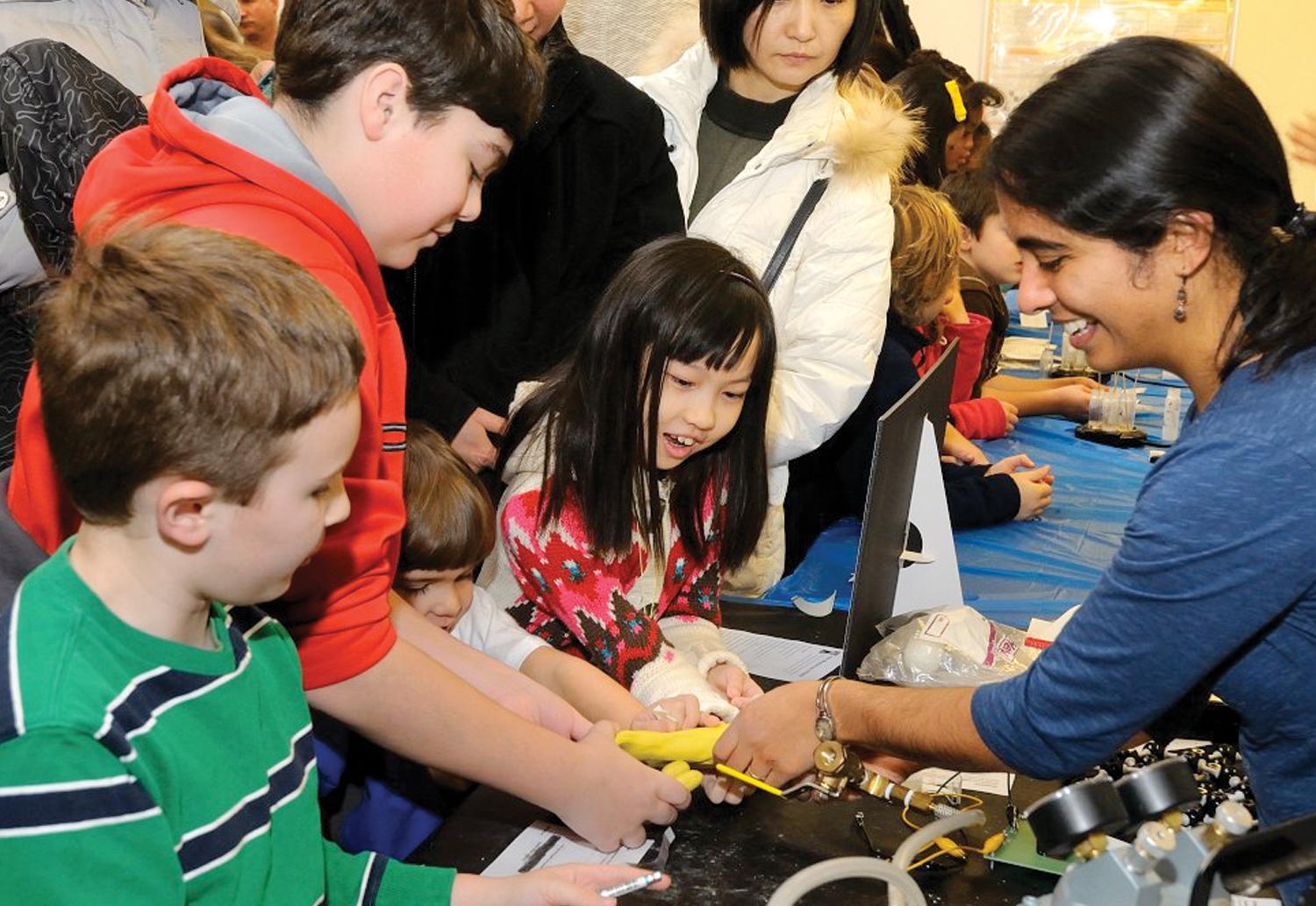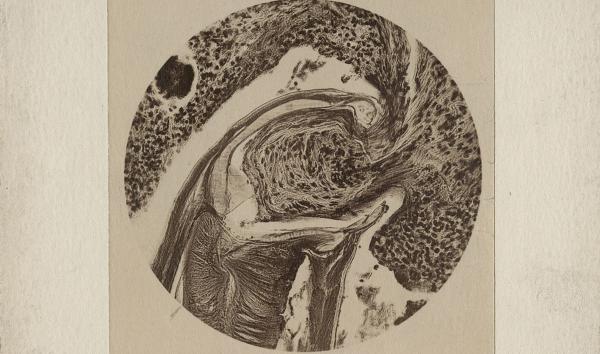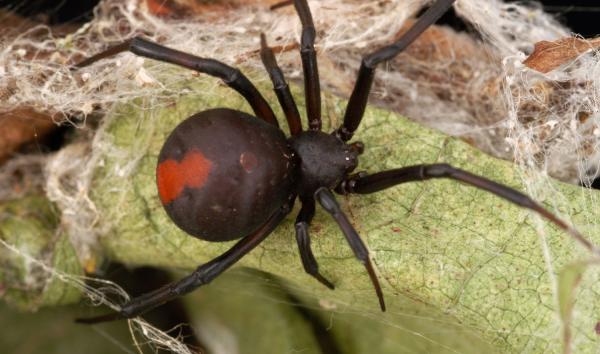Jayatri Das, Ph.D.

Jayatri Das, Ph.D.
As Chief Bioscientist at The Franklin Institute, Jayatri Das helps us understand ourselves. How do our brains work? How do our neighborhoods affect our health? How will new technologies change our future? As an awesome science communicator, she brings us all into the conversation!

Jayatri has led exhibit development of both Your Brain, a national award-winning exhibit about the neuroscience and psychology of the human brain, and SportsZone. She also leads The Franklin Institute’s programming initiatives about materials science, nanotechnology, synthetic biology and other areas of emerging science and their impact on our everyday lives.
Jayatri earned her Ph.D. in ecology and evolutionary biology from Princeton University and conducted postdoctoral research in biology at the University of Pennsylvania, investigating the biochemical processes that allow living things to adapt to different environments (and hunting for wild fruit flies from Florida to Canada along the way). Watch her Science Story about a moment of unexpected discovery!
Prior to joining The Franklin Institute, Jayatri held a Science and Technology Policy Fellowship at the Marian Koshland Science Museum of the National Academy of Sciences in Washington, DC. In 2016, she was honored with the American Alliance of Museums’ Nancy Hanks Award for Professional Excellence. Jayatri is an invited Fellow of the Center for Neuroscience & Society at the University of Pennsylvania.
Follow her on Twitter at @JayatriDas.
Recent Blogs by Author

Game of Parasites: A Competition for Blood
The Houses of Westeros may have captured our attention with their epic battle for the Iron Throne, but there’s another competition taking place in nature that's fascinating in its own right. Ecologists often study species that are competing for the same food, habitat, or other resources to understand how their interaction affects the structure of an ecosystem. These same principles apply within animal hosts, at a microscopic level, when multiple species of parasites fight over red blood cells.

Will the First Blood Test for Concussions be a Game Changer?
Here in Philadelphia, we’re still relishing the thrill of long-awaited victory as the ticker tape from the Eagles’ Super Bowl parade flutters from the trees. Even as we watched the game, however, we couldn’t escape the ever-present risk of brain injuries in football, as several players suffered game-ending hits.

The Wild World of Spider Mating
For humans, navigating the dating scene to find a mate is tricky enough. It’s even tougher for a male Australian redback spider—80% of males never find a mate. Dr. Maydianne Andrade at the University of Toronto Scarborough has studied these spiders for decades, discovering that desperate times call for desperate measures. During mating, male redbacks somersault onto the fangs of females, often getting cannibalized. But this self-sacrifice is worth it, as it significantly improves their odds of reproduction.

